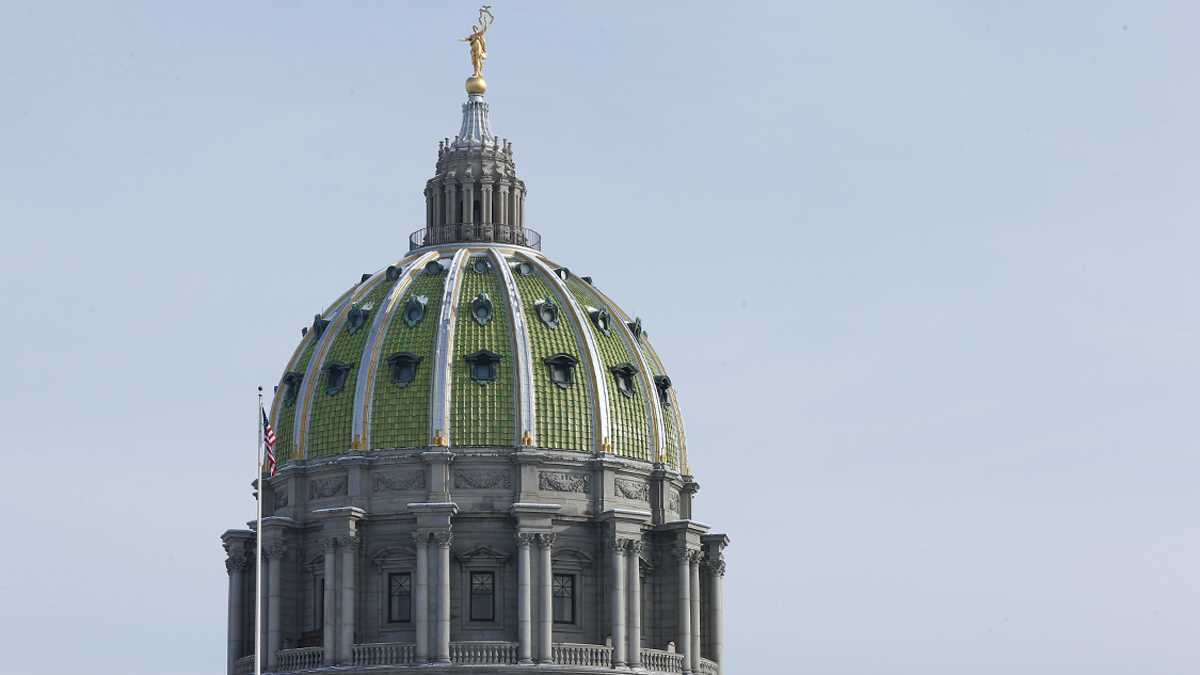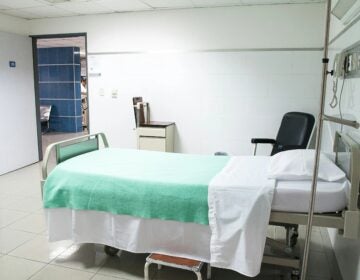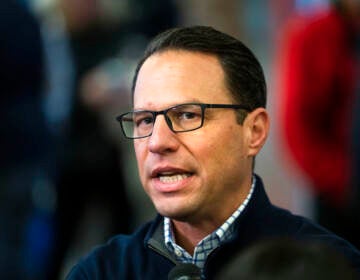What will the House do? It’s Pennsylvania’s $2B question

(AP Photo/Matt Rourke)
The question of what Pennsylvania’s House Republican majority will do about a $2.2 billion hole in the state budget is sending ripples of worry through some quarters.
House GOP leaders have been quiet this month after the Republican-controlled Senate passed a bipartisan revenue plan in July that Democratic Gov. Tom Wolf supports.
It is now two months since the Legislature overwhelmingly approved a 3 percent spending bump in the shadow of state government’s largest shortfall since the recession.
“I don’t think anyone thought it was going to go on this long,” said Mark DiRocco, executive director of the Pennsylvania Association of School Administrators. Why it has “no one seems to understand,” he said.
The quandary comes two years after Wolf and Republican lawmakers battled through a record-long, nine-month stalemate.
One of the biggest spending increases in the eventual agreement went to services for people with autism and intellectual disabilities, making it the best budget in a decade for those residents, said Maureen Cronin of the Arc of Pennsylvania. Now, Arc chapters from around the state are watching with rising concern.
“When they call me, they go, ‘Is this going to be another nine months?'” Cronin said. “It’s unnerving to watch. Every day, we’re like ‘What else is going to happen?’ We appreciate how legislators are looking under every rock to try to find funds. But, at this point, we need a budget.”
Looming in September is the potential for another downgrade to Pennsylvania’s battered credit rating and Wolf may need to start freezing cash for state programs or postponing payments to vendors.
The Capitol is largely empty. Fingerpointing is sporadic.
Wolf is saying little and, with the government ostensibly operating normally, there’s little public pressure to act, House members say. The House is scheduled to return to session Sept. 11, and votes are unlikely before then.
Instead of trying to hammer out a deal with Wolf or Senate leaders, top House Republicans have hunkered down and let rank-and-file members float ideas. They have had little contact with Wolf, Democratic lawmakers or Senate leaders.
“The governor’s sitting around waiting, the Senate’s sitting around waiting and our leadership is sitting around waiting to see if there’s an organic solution,” said Rep. John Taylor, R-Philadelphia. “But I would predict there’s not.”
Taylor, some moderate Republicans and many House Democrats see an income tax increase as the fairest way to resolve an entrenched deficit that has dogged lawmakers since the Recession. But Wolf isn’t asking for an income tax and, with the Legislature ruled by anti-tax GOP majorities, House Republicans are searching for other sources of cash.
“There’s a lot of little pieces that have to come together yet, but we all want to avert a financial crisis,” House Appropriations Committee Chairman Stan Saylor, R-York, said Thursday.
After years of opposition, House GOP leaders may eventually join Senate Republican leaders in allowing a vote on a Marcellus Shale natural gas production tax, a key pursuit of Wolf’s. However, many House members who support the idea say they want a bigger tax than the $100 million proposal included in the Senate’s revenue package.
House Republicans otherwise dislike the Senate’s revenue plan. Even House Democratic leadership has been silent, reflecting rank-and-file discomfort.
Particularly objectionable is $1.3 billion in borrowing; $400 million in higher taxes on consumers’ utility bills, primarily natural gas service; and $200 million in anticipated license fees by allowing an expansion of commercial casino offerings.
When it comes to expanding gambling, many House members side with allowing bars and truck stops to install slot-machine-style gambling terminals, rather than authorizing more commercial casinos.
House GOP members are trying to assemble a plan to divert cash from off-budget programs. How much money is actually available is in question, and siphoning cash from such operations as transportation projects or emergency response centers could be politically thorny.
Meanwhile, Rep. Todd Stephens, R-Montgomery, said he wants hundreds of millions of dollars in “corporate welfare” squeezed out. Rep. Carl Metzgar, R-Somerset, is among a group pressing House GOP leaders to pare the nearly $32 billion budget bill that lawmakers approved June 30. And $600 million in aid to Penn State, Pitt, Temple, Lincoln and the University of Pennsylvania’s veterinary school remains in limbo in the Legislature.
WHYY is your source for fact-based, in-depth journalism and information. As a nonprofit organization, we rely on financial support from readers like you. Please give today.




